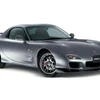More car buyers now expect to go electric with their next purchase

- Potential car buyers looking for electric or hybrid cars overtakes those looking for internal combustion power for the first time
- Motorists still concerned by lack of charging points and range
- Only 35% of drivers now looking for solely internal combustion-powered cars
Around 37% of potential car buyers now expect their next vehicle to be either electric or hybrid powered, according to research results released on Tuesday (27 July).
The research, carried out by Kwik Fit, also suggests that the number of drivers expecting their next car to be fully electric has risen by 32% in a year. Eleven percent of drivers who are planning to change their car expect its replacement to be fully electric, compared to 8% of drivers a year ago.
For the first time, the number of drivers expecting to buy either electric or hybrid cars has overtaken the amount of people who expect to purchase either petrol or diesel vehicles. Only 35% of potential purchasers expect their next car to be fully powered by internal combustion. That figure was 41% in 2020, compared to 33% of those who expected to buy cleaner equivalents.
The locations of those looking to go electric varies widely. People living in urban areas are the most likely to consider electric or hybrid, with 65% of London drivers now considering switching to new power sources. The second highest region was the North East with 49%, while in contrast, only 24% of Scottish drivers are considering a low emission option for their next vehicle.
While the research shows a higher willingness from the population to go electric, the data also included reasons why people aren’t yet considering the option at the present moment. The greatest concern is the lack of fast charging points in the areas the respondents frequently drive in, with 38% people citing this as a reason. Other concerns include the increased costs over an equivalent sized petrol, diesel or hybrid, range restrictions, lack of home charging points and battery life.
Around 16% of potential purchasers simply prefer internal combustion, while the same number of people want to hear more from the experiences of friends or family before committing to purchasing. Many drivers also feel that the new breed of car simply aren’t more environmentally friendly than existing cars, eight percent feel that they don’t like the style of cars available, and the same are waiting for a higher power option.
Over 50% of Welsh and Yorkshire motorists are concerned by the lack of charging points, while North East, South West, South East and Scottish drivers are put off by the increased costs. Those in the West Midlands and the East of England are most concerned by range restrictions.
Electric vehicles also create uncertainty; those looking to change their car for a conventionally powered machine expect to do so in 17.6 months, compared to a 23.9 month window for someone eyeing an electric model.
The rapidly approaching 2030 cut-off for the sale of new cars powered solely by internal combustion is likely to see these figures rise further.
“This research shows that over the last twelve months car buyers appear to have passed a tipping point in the switch to electric cars,” says Kwik Fit communications director Roger Griggs.
“However, although consideration of low emission models has overtaken that for petrol and diesel there is clearly still a lot to do to convince some drivers. Some barriers to consideration can be put down to misperception or a lack of up to date knowledge and the industry must work together to address those areas. But it is also vital that there is visible investment made in the charging infrastructure to ensure that drivers have the confidence to make the switch.”
Richard Randle is a motorsport PR professional working with the UK’s top racing circuits and the UK’s premier single-seater category, the BRDC British F3 Championship.


